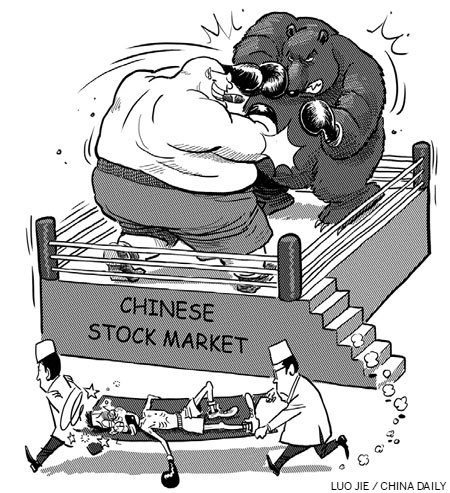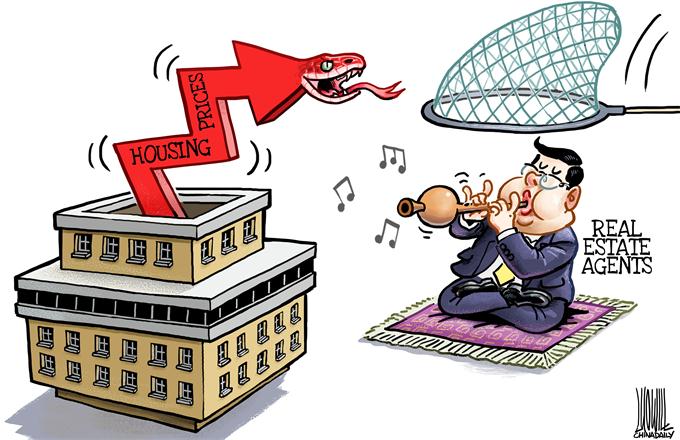Maturing market presents more challenges

Many individual investors in Chinese stocks have called it a day after having lost faith in the market. Last year more than two-thirds of the active accounts of individual investors were sleeping accounts, because they had not registered any transaction. With increasing numbers of individual investors exiting, the stock market is now entering a new period in which institutional investors start to dominate the market. This seems inevitable as China's stock market matures.
Individual investors' passion for stocks was at its height five years ago when they accounted for more than 95 percent of all stock accounts. But after the stock index reached a peak of 6124 in October 2007, it took just one year for it to drop to 1664. Although the index rebounded to 3478 in September 2009, the activities of individual investors have been subdued since then.
Because individual investor's activities have more or less died down over the last five years, the capital inflow into the stock market has suffered. The serious losses they have incurred, along with the continued downward trend of the stocks, means individual investors have no intention of venturing further into the stock market. Thus large accounts have shrunk and even been closed.
This process can be seen quite clearly in the capital distribution of individual accounts. Although the number of small accounts with less than 100,000 yuan ($15,984) increased by 16.2 percent from 2009 to 2011, the number of large accounts, with capital of more than 10 million yuan, fell by 17.28 percent and the number of accounts with 5 million yuan to 10 million yuan declined by 21.9 percent. Also, in 2012 the number of smaller accounts dropped by 5 percent.
International experience shows that such a transition - when individual investors leave the market - is inevitable in a maturing stock market like China's. In a mature stock market, institutional investors account for about 80 percent of the total number of transactions, which is good for market stability. In the US stock market in 2008, for example, individual investors accounted for only 34 percent of the market's value, the lowest in its history. In contrast, the share of individual investors in 1950 was 94 percent and dropped to 63 percent in 1980.
The transition in China is happening more quickly. What took decades in the US to develop is taking just years in China to happen. That's why the exit of individual investors may be good for the development of the stock market, because the central government can stop safeguarding the profits of investors by taking non-market measures. With the government no longer required to play the role of savior, there will not be any need for unsuitable administrative intervention.
Such a transition - in which institutional investors begin to dominate the stock market - is inevitable in China because the current share of individual investors in total trade is still about 80 percent. The transition is irreversible, because China's maturing stock market will no longer be suitable for individual investors, especially small investors.



















